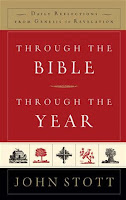
Becoming What We Worship
Romans 1: 18-32
Verse 18 & 32 form bookends around this section of
Paul’s argument: God’s displeasure is revealed – ultimately in death – against
our tendency to distort God (ungodliness) and thereby one another who are
created in God’s image (unrighteousness).
The theme of this passage is that when we displace God (in false
worship) we distort ourselves (those who are made in God’s image) in
unrighteous living. When the center goes
everything else goes. God lets it happen
(“God gave them up” vv.24, 26, 28) not merely as judgment but also as
mercy.
Ungodliness –
translates asebia which literally
means “no worship.” Ungodliness is the
posture of finding one’s center is something or someone other than God. This false center distorts one’s own
perspective and values so that it inevitably leads to false living.
Unrighteousness – translates adikia which means “no justice.”
This is a person who lives as if their own desires and expectations are
the standards for all. It is a false
measure based on a false center.
Unrighteousness is the result of ungodliness. Their relation is cause to effect. And the effect is that we distort the cause –
“by their unrighteousness suppress the truth.”
What truth is it that our unjust lives suppress? We suppress the truth of God’s nature which
is revealed in the world around us – especially the world of interpersonal
relationships. We suppress the truth
that relationships are whole to the degree that they are grounded in God. And we suppress the truth about how our
relations are restored through the “obedience of faith.”
Paul then demonstrates how these effect one another, by
“giving us up” to the false centers we construct and give ourselves to.
Ungodliness/Cause Unrighteousness/Effect
(1) Lusts of their
hearts (v.24)
|
(1) To dishonor
their bodies (v.24)
|
(2) Dishonorable
passions (v.26)
|
(2) To exchange
natural relations (v.26)
|
(3) Debased mind
(v. 28)
|
(3) Filled all
manner of unrighteousness
|
A lot of these unrighteous acts are in the realm of sexual
behavior. Why is that? I wonder if this is not analogous to our
relationship with God? When we distort
God’s image we invariably distort the divine image in us. If the dominant motif underlying Paul’s
argument is the Garden of Eden, then we must recall that the image of God in
the garden is defined in terms of male and female relationships. The divine image in them is constituted by
their complimentary and differentiated relation. The first distortion after their distrust and
distortion of God was to practice the same suspicion against one another. Paul is making explicit in Romans one what is
implicit in Genesis three: Exchange Gods
and you will exchange your genuine humanness.
Does life confirm this analysis?
No comments:
Post a Comment